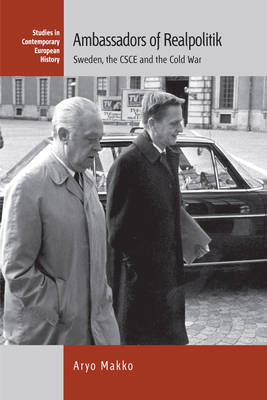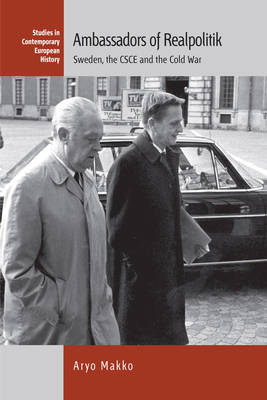
- Afhalen na 1 uur in een winkel met voorraad
- Gratis thuislevering in België vanaf € 30
- Ruim aanbod met 7 miljoen producten
- Afhalen na 1 uur in een winkel met voorraad
- Gratis thuislevering in België vanaf € 30
- Ruim aanbod met 7 miljoen producten
Omschrijving
During the Cold War, Sweden actively cultivated a reputation as the "conscience of the world," working to build bridges between East and West and embracing a nominal commitment to international solidarity. This groundbreaking study explores the tension between realism and idealism in Swedish diplomacy during a key episode in Cold War history: the Conference on Security and Cooperation in Europe, culminating in the 1975 Helsinki Accords. Through careful analysis of new evidence, it offers a compelling counternarrative of this period, showing that Sweden strategically ignored human rights violations in Eastern Europe and the nonaligned states in its pursuit of national interests.
Specificaties
Betrokkenen
- Auteur(s):
- Uitgeverij:
Inhoud
- Aantal bladzijden:
- 300
- Taal:
- Engels
- Reeks:
- Reeksnummer:
- nr. 20
Eigenschappen
- Productcode (EAN):
- 9781789205176
- Verschijningsdatum:
- 12/12/2019
- Uitvoering:
- Paperback
- Formaat:
- Trade paperback (VS)
- Afmetingen:
- 152 mm x 229 mm
- Gewicht:
- 403 g

Alleen bij Standaard Boekhandel
Beoordelingen
We publiceren alleen reviews die voldoen aan de voorwaarden voor reviews. Bekijk onze voorwaarden voor reviews.











